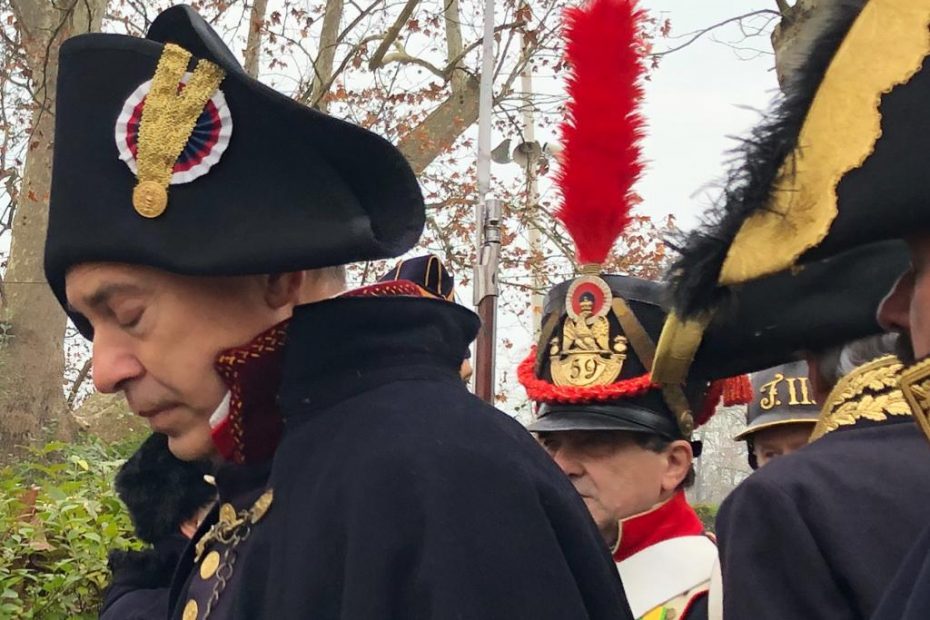The Coronavirus emergency has caused many local cultural events to be cancelled, including the traditional historical re-enactment of the Battle of Marengo, which was originally scheduled for June 13, 14, 15 and will not take place this year.
This year Napoleonic soldiers will not take up arms; and yet, they have chosen to open their hearts and contribute to an even more crucial battle: the Historical Association 59° Demi Brigade d’Infanterie de Ligne de Marengo has decided to donate the sum which was to cover the costs of organizing the re-enactment (about 6.000 €) to the Fondazione Uspidalet Onlus for the purchase of a number of CPAP helmets destined for the Ospedale SS. Antonio e Biagio e Cesare Arrigo di Alessandria.
“We only made a small donation” explains Gian Lorenzo Bernini from the 59° Demi Brigade. “We had this sum on our account and the hospital was in dire need of help, so- in partnership with the Comune di Alessandria and the Solvay Group of Spinetta Marengo- we have decided to make a donation. It was only a small donation to counter the current crisis”.
Men and women with a shared passion for history, re-enactors of legendary battles which shaped the fate of Europe, have been forced to lay down their arms and answer a greater call: the call to fight against the Covid-19 epidemic.
But the 59° Demi Brigade do not simply re-enact battles: they bring to life every aspect of the daily life of armies in the 19th century, including battlefield medicine. The re-enactment of the Battle can thus prove to be fundamental in order to highlight the link between the Napoleonic era and contemporary history, thus emphasizing the indissoluble bond between past and present.
The past comes back: interview with the military surgeon of the 59°Demi Brigade
Since the beginning of the Coronavirus emergency, the term triage has become part of our everyday vocabulary; as explained by medical officer of the 59° Demi Brigade Dr. Nicola Cosentino, eye surgeon, the term has its origins in the Napoleonic era: “Thanks to Napoleon and military surgeon Dominique-Jean Larrey (the character I play), soldiers started to be treated on the basis of the severity of their injuries, without regard to their military rank; this approach is actually very similar to the one adopted in Italian hospitals during the last few months in order to treat the increasing number of patients who suffer from Covid-19”.
“During our re-enactments with the 59° Demi Brigade”, continues Dr. Cosentino “we do not only show the kind of equipment, but also the types of wounds and first-aid techniques used, thus showing the way in which epidemics can be managed. It is also worth noting that Napoleon himself had hospitals built in order to treat the diseases which were spreading among his ranks. For instance, after the French Campaign in Egypt, thousands of soldiers contracted trachoma, an infectious disease which affects the eyes. Napoleon thus decided to have dedicated medical facilities built in order to contain and treat the disease, also using specially designed face masks so as to avoid further infection. Even at the beginning of the 19th century, prevention played a crucial role, not only in the military but also in the civilian population. Napoleon thus chose to extend the benefits of advances in battlefield medicine to the countries which had been conquered- or freed- by his troops”.
Thus, the deeds of historical figures can prove to have a lasting impact on the present: just like the Napoleonic army, we are fighting a battle against an invisible enemy. To quote Napoleon, despite the number of casualties, “We need to believe that we can win, we need to want it with every fiber or our being, after which the only thing left to do is to fight”.
(translation by UJCE)
